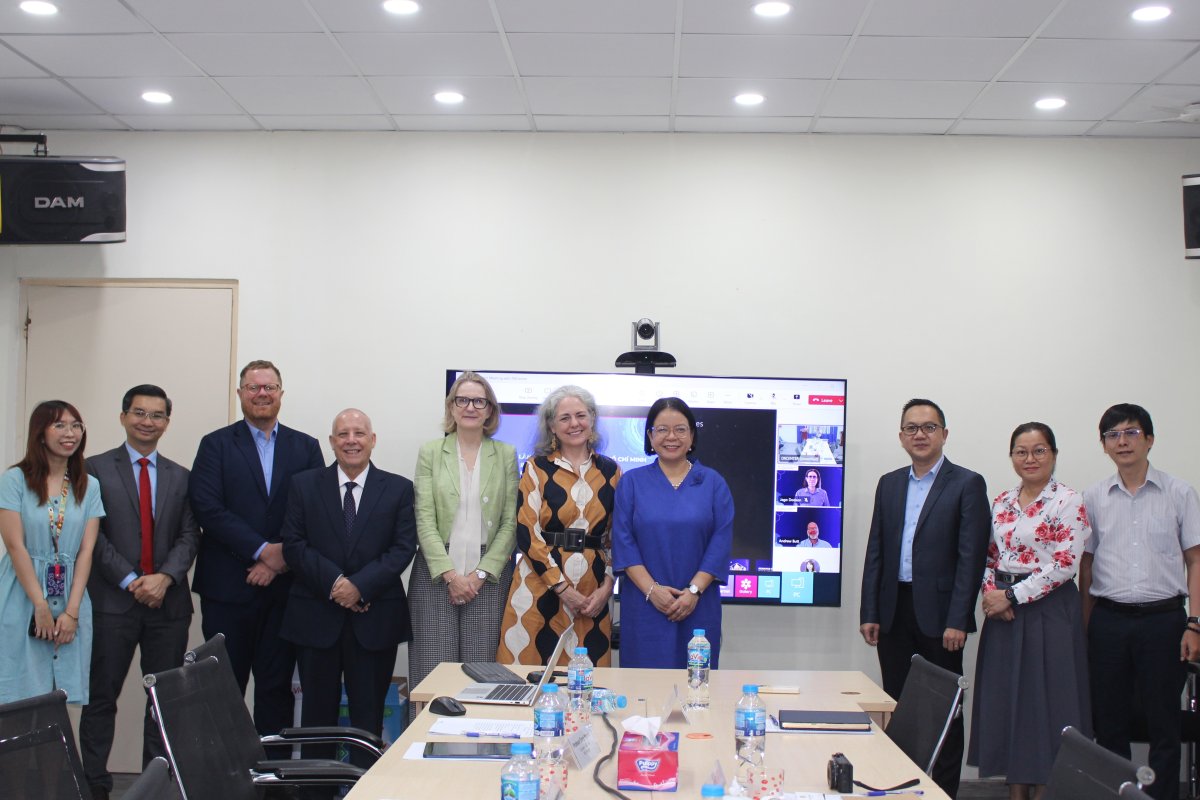Funded by an RMIT Vietnam internal research grant, the Making art, making life project examines how contemporary female Vietnamese artists communicate feminism through their art. The study has brought together a team of researchers: Dr Shweta Kishore and Dr Bryan Urbsaitis, both School of Communication & Design(link is external) lecturers; and the Vietnamese art manager Nguyen Phuoc Bao Chau.
According to Dr Kishore, the primary investigator on the project, the team aims to create scholarly information about feminist art practices in Vietnam.
“A majority of feminist theories and discourses are currently dominated by Western voices. With this project, we would love to examine how the discourse is organised in Vietnam and to include voices from Vietnam to this global discourse,” Dr Kishore said.
Using qualitative methodology, the team investigates the artworks of individual Vietnamese contemporary female artists to determine how these artists use their medium to express gender concerns, in addition to how feminism is understood in Vietnam’s cultural, historical and political context.
After examining numerous works from different Vietnamese artists, the team selected four contemporary artists whose works have been deeply engaged in gender issues.
“Each and every of these four multidisciplinary artists experiment with a lot of art forms, including performing art, sculpture, poetry and multimedia, to express very personal views about gender,” Dr Kishore explained.
“As they are independent artists, their artworks from the concept to execution are reflections of their own experience.”
Data on the artworks will be collected through several rounds of interviews, and then analysed to identify themes.
“Rather than having our own preliminary theoretical structure to test, we look forward to producing new and unique grounded information that emerges from these themes, be it about the body image, or the concern of choice,” Dr Kishore shared.
The team set the foundation for their work over the last six months by meeting artists, studying their works and then choosing participants to discuss collaborations with them. The project will now enter the formal process, and is expected to create a visual result.
“We will produce a documentary film as the output of this research. Besides, there will be a short video installation exhibited in galleries to encourage artists to create the feminism dialogue among themselves,” Dr Kishore added.
Story: Le Thanh Phuong





